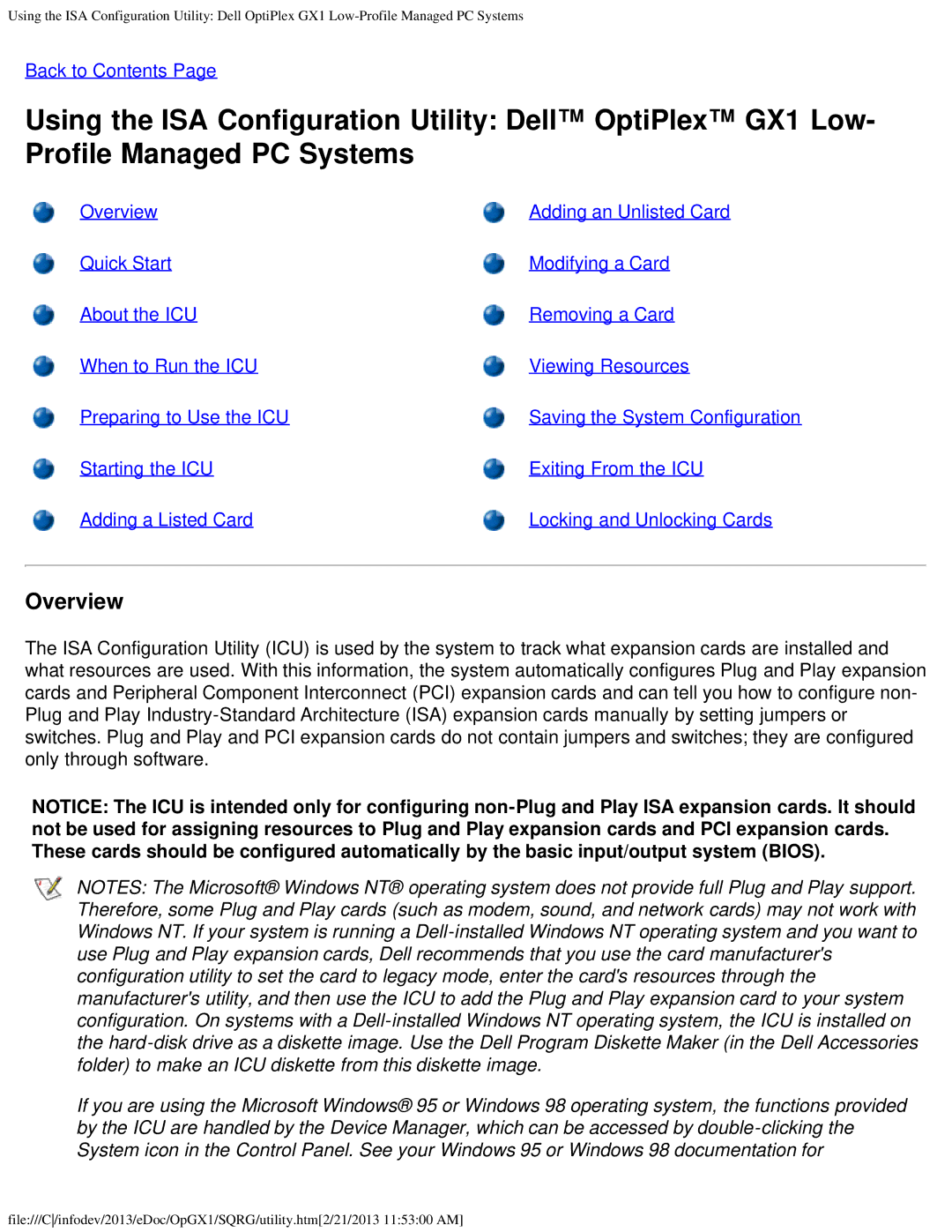
Using the ISA Configuration Utility: Dell OptiPlex GX1
Back to Contents Page
Using the ISA Configuration Utility: Dell™ OptiPlex™ GX1 Low- Profile Managed PC Systems
Overview | Adding an Unlisted Card |
Quick Start | Modifying a Card |
About the ICU | Removing a Card |
When to Run the ICU | Viewing Resources |
Preparing to Use the ICU | Saving the System Configuration |
Starting the ICU | Exiting From the ICU |
Adding a Listed Card | Locking and Unlocking Cards |
Overview
The ISA Configuration Utility (ICU) is used by the system to track what expansion cards are installed and what resources are used. With this information, the system automatically configures Plug and Play expansion cards and Peripheral Component Interconnect (PCI) expansion cards and can tell you how to configure non- Plug and Play
NOTICE: The ICU is intended only for configuring
NOTES: The Microsoft® Windows NT® operating system does not provide full Plug and Play support. Therefore, some Plug and Play cards (such as modem, sound, and network cards) may not work with Windows NT. If your system is running a
If you are using the Microsoft Windows® 95 or Windows 98 operating system, the functions provided by the ICU are handled by the Device Manager, which can be accessed by
file:///C/infodev/2013/eDoc/OpGX1/SQRG/utility.htm[2/21/2013 11:53:00 AM]
